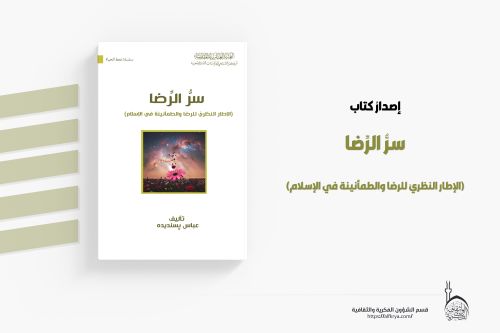

Grammar


Tenses


Present

Present Simple

Present Continuous

Present Perfect

Present Perfect Continuous


Past

Past Continuous

Past Perfect

Past Perfect Continuous

Past Simple


Future

Future Simple

Future Continuous

Future Perfect

Future Perfect Continuous

Passive and Active


Parts Of Speech


Nouns

Countable and uncountable nouns

Verbal nouns

Singular and Plural nouns

Proper nouns

Nouns gender

Nouns definition

Concrete nouns

Abstract nouns

Common nouns

Collective nouns

Definition Of Nouns


Verbs

Stative and dynamic verbs

Finite and nonfinite verbs

To be verbs

Transitive and intransitive verbs

Auxiliary verbs

Modal verbs

Regular and irregular verbs

Action verbs


Adverbs

Relative adverbs

Interrogative adverbs

Adverbs of time

Adverbs of place

Adverbs of reason

Adverbs of quantity

Adverbs of manner

Adverbs of frequency

Adverbs of affirmation


Adjectives

Quantitative adjective

Proper adjective

Possessive adjective

Numeral adjective

Interrogative adjective

Distributive adjective

Descriptive adjective

Demonstrative adjective


Pronouns

Subject pronoun

Relative pronoun

Reflexive pronoun

Reciprocal pronoun

Possessive pronoun

Personal pronoun

Interrogative pronoun

Indefinite pronoun

Emphatic pronoun

Distributive pronoun

Demonstrative pronoun


Pre Position


Preposition by function

Time preposition

Reason preposition

Possession preposition

Place preposition

Phrases preposition

Origin preposition

Measure preposition

Direction preposition

Contrast preposition

Agent preposition


Preposition by construction

Simple preposition

Phrase preposition

Double preposition

Compound preposition


Conjunctions

Subordinating conjunction

Correlative conjunction

Coordinating conjunction

Conjunctive adverbs


Interjections

Express calling interjection


Grammar Rules

Preference

Requests and offers

wishes

Be used to

Some and any

Could have done

Describing people

Giving advices

Possession

Comparative and superlative

Giving Reason

Making Suggestions

Apologizing

Forming questions

Since and for

Directions

Obligation

Adverbials

invitation

Articles

Imaginary condition

Zero conditional

First conditional

Second conditional

Third conditional

Reported speech


Linguistics

Phonetics

Phonology


Semantics


Pragmatics

Linguistics fields

Syntax

Morphology

Semantics

pragmatics

History

Writing

Grammar

Phonetics and Phonology

Semiotics


Reading Comprehension

Elementary

Intermediate

Advanced


Teaching Methods

Teaching Strategies
New England dialect regions TRAP, BATH, HAPPY AND DANCE
المؤلف:
Naomi Nagy and Julie Roberts
المصدر:
A Handbook Of Varieties Of English Phonology
الجزء والصفحة:
273-15
2024-03-16
1104
Vowels TRAP, BATH, HAPPY AND DANCE
At the time of the Linguistic Atlas of New England (LANE) fieldwork, both BATH and TRAP comprised a unified low front vowel across New England (Kurath 1939– 43: Maps 150 sack, 344 pantry, and 371 dad, cited in Boberg 2001: 13). Laferriere’s (1977: 102–3) findings from urban Boston show a less uniform picture. She reported for BATH a non-productive backing: lexicalized and categorical before many /f/ and /θ/ words and in some /n/ words (e.g., half, rather, aunt) and lexicalized but variable before /s/ and in other /n/ words (e.g., last, dance). Supporting evidence comes from Calais, ME, where a majority of speakers report saying [ant] for aunt. Some speakers report [ant], but none report [ænt]. This differs from much of the US, where [ænt] is used (Miller 1989: 124). Our NH speakers use [æ] for all of these word classes except aunt, which is [a].
Laferriere (1977) also reports a productive, phonological process raising TRAP and BATH to [εə], demonstrated by her younger speakers. As this process was found to affect both TRAP and BATH vowels, it thus encroaches on the lexical BATH class that had been subjected to backing. A more recent study of WNE found raising of the nucleus in TRAP and BATH in all environments and tensing (as well as raising) before nasals (DANCE) (Boberg 2001: 17–19). A small sample of telephone survey data (Labov, Ash and Boberg fc.) showed this to be the case across WNE with exception of the very northern city of Burlington, Vermont. Words like bad and stack are pronounced with [eə], and words like stand and can are pronounced [εə].
Labov (1991: 12) suggests that unified raising of TRAP/BATH/DANCE is a pivot condition for the NCCS (Northern Cities Chain Shift). Boberg (2001: 11) further argues that the NCCS may thus have had its beginnings in northwestern NE. The existence of this raising pattern is surprising if one accepts the reported lack of BATH-raising in the LANE data (Kurath 1939-43), especially given that Labov, Ash and Boberg (fc.) does not show this to be an incipient vigorous change: older speakers show more raising than younger speakers in Hartford, CT, Springfield, MA, and Rutland, VT (Boberg 2001: 19).















 قسم الشؤون الفكرية يصدر مجموعة قصصية بعنوان (قلوب بلا مأوى)
قسم الشؤون الفكرية يصدر مجموعة قصصية بعنوان (قلوب بلا مأوى) قسم الشؤون الفكرية يصدر مجموعة قصصية بعنوان (قلوب بلا مأوى)
قسم الشؤون الفكرية يصدر مجموعة قصصية بعنوان (قلوب بلا مأوى) قسم الشؤون الفكرية يصدر كتاب (سر الرضا) ضمن سلسلة (نمط الحياة)
قسم الشؤون الفكرية يصدر كتاب (سر الرضا) ضمن سلسلة (نمط الحياة)

















